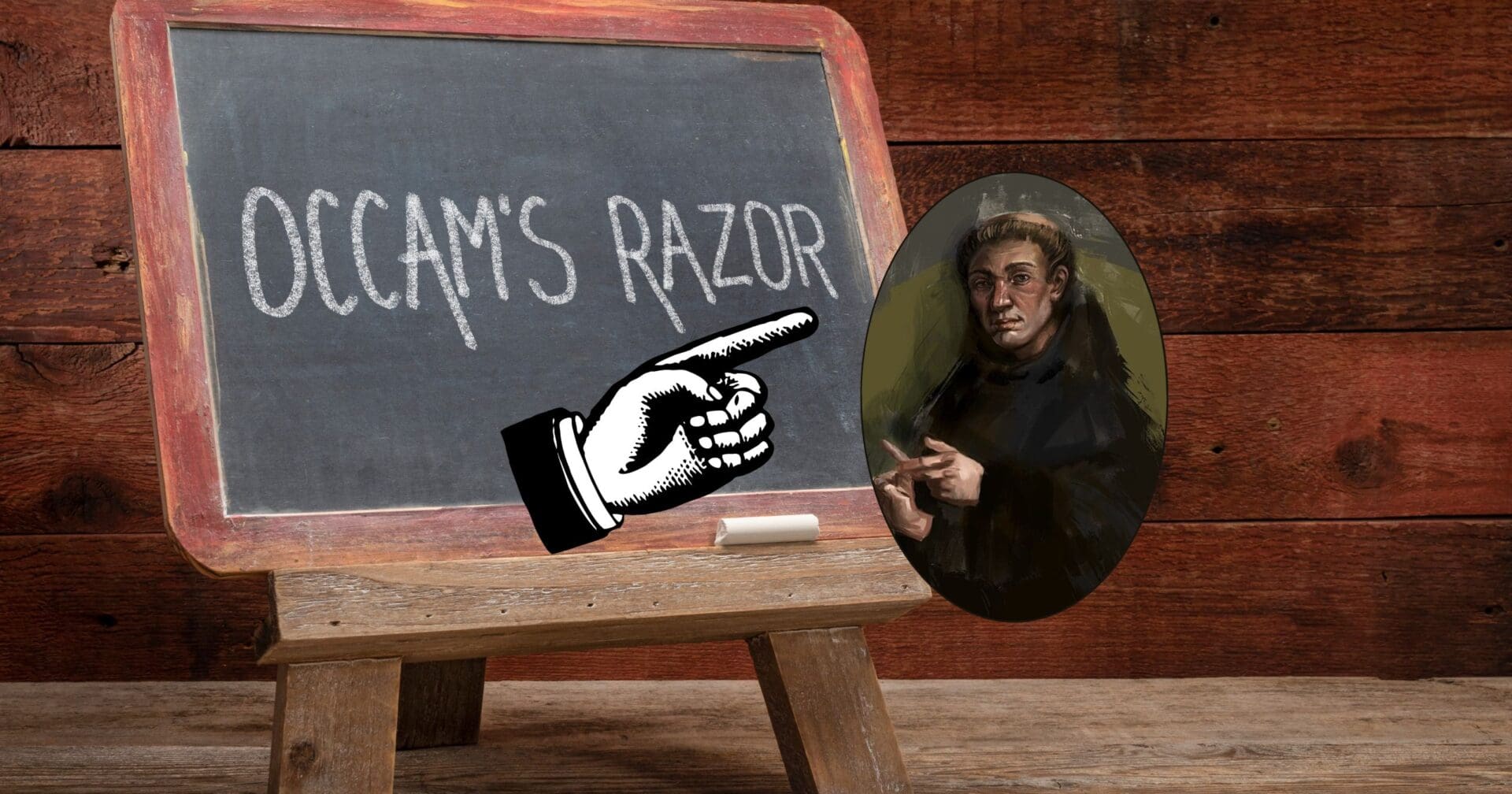In the heart of the 14th century, a profound principle emerged from the mind of a Catholic monk, William of Ockham, which continues to guide the the path of reasoning and understanding today.
Known as Occam’s Razor, this guiding light in problem-solving simplifies the complex, advocating for explanations with the least number of assumptions.
But who was the man behind this?
William of Ockham, an English Franciscan friar, was not just a theologian but a trailblazer in philosophy and logic. His life was a pursuit of truth, challenging the intellectual and political controversies of his time with a razor-sharp wit.
Occam’s Razor, often summarized as “Entities must not be multiplied beyond necessity,” reflects a minimalist approach, though he never penned these exact words. This principle champions the simplest explanation, steering clear of unnecessary complexities.
Ockham’s deep conviction that “nothing ought to be posited without a reason given” explains his belief in reason, experience, and the authority of Sacred Scripture. Despite his monumental contribution to logic and science, William of Ockham viewed theology as a realm illuminated by revelation and faith, saying, “only faith gives us access to theological truths.”
Today, Occam’s Razor transcends its medieval origins.
William of Ockham’s life and work, deeply rooted in his Catholic faith, continue to inspire and guide seekers of truth across disciplines, proving that sometimes, the simplest path leads to the deepest insights!
Photo credit: marekuliasz / Shutterstock.com | AldrianMini via Wikimedia Commons














